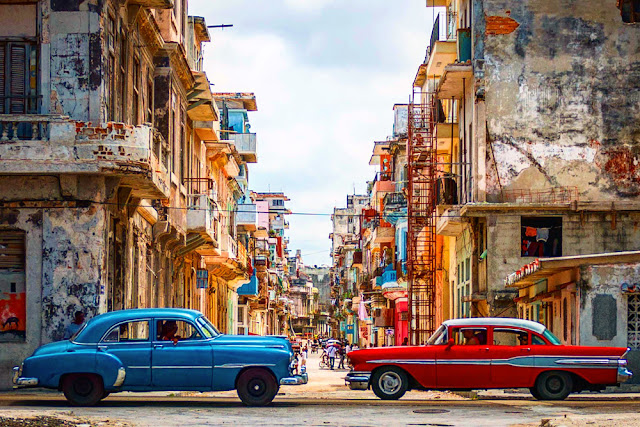From Havana with Love
Hi folks, I just got back from a week in Cuba on a tour of
Cuban pedagogy for U.S. educators. There were ten people in our very diverse
group from Florida and New Mexico, including one very sweet Chinese girl from Shanghai,
who resides here in South Florida teaching the Chinese. Our group had great
interpersonal dynamics and we were kept very busy from 8 AM until 5 PM every
day, and on some occasions into the night with visits to community centers,
schools, museums, artist communities, political and tourist presentations and
several roundtable discussions with Cuban teachers. It was fabulous and
informative, if a bit fatiguing at times. My last visit to Cuba was in 2010,
and my first visit to Cuba was all the way back in the “special period” of 1993
when Cuba was struggling with the collapse of subsidies from the Communist
bloc. The amount of change over 24 years has been incremental but truly
remarkable.
The hotel that we stayed in was formerly used for the
military but was refurbished and repurposed to accommodate the flood of new
tourists. I was amazed to see SO MANY
old classic Fords and Chevys from the 1950s with new paint jobs, prowling the
streets with tourist passengers. I was told that many Cubans who have access to
money (perhaps from relatives in the exile community) are purchasing these
classic cars and hiring drivers to keep them on the streets night and day in
two or three shifts. Because convertibles can charge higher taxi rates to
tourists, many of the hardtops have been cut off and they have been rebuilt
into convertibles. My personal favorites were the 1957 and 1959 Ford Fairlanes
(my dad drove first a 57 and then a 59).
Observations
- We were told that “LOTS” of university tour groups going. I don’t recall numbers, but more than the tourist agency could keep up with.
- There have been big improvements in tourist infrastructure and upgrades to deteriorating housing in prime tourist areas
- Many more Cubans have money in their pockets. Our tour guide let it slip that he has been able to vacation in France and in Turkey.
Entrepreneurial business opportunities for Cubans:
- Fixing up old, classic antique fords and Chevys and putting them to work as tourist taxis … some Cubans buy them, fix them up, give them a paint job and then hire some other Cuban to drive them, night and day
- Some exile Cubans are giving money to relatives to “purchase” old, deteriorating houses facing the Malecon, or within a short walk, and remodeling them in order to put in nice restaurants, bars, bed and breakfasts, or discos. You can’t just purchase them unless you’re a Cuban resident.
- Of course, the second opportunity leads to a third, which opening private restaurants, bars and discos as well as small hotels or bed and breakfasts. I ate the best restaurant food on this trip that I have experienced since I started going to Cuba.
One highlight of the trip for me was meeting some truly
dedicated Cuban teachers who work very hard on behalf of their students. I
think we had a meeting of the minds, as we U.S. educators asked questions and
in turn answered questions from our Cuban colleagues. This just confirms for me that it takes
special people to be teachers, and that teachers are true heroes everywhere,
and in every society.
Employees of the
State and representatives of the Party are still VERY hard line. We were forced
to listen to at least 3 rhetorical harangues with considerable political spin, about
the heroic revolution and the determination of young communists to keep Cuba on
the communist track.
My conclusion;
this is likely to develop like China, with
economic liberalization but with a very, very tight political control under a
single communist party. If Cuban elites who moved to Miami have any illusions
about returning to political power in Cuba after the Castro’s are gone, I think
they should reconsider. A fierce sense of nationalism vis-à-vis the United
States is still very much alive and well, and exists paradoxically with the
natural friendliness of Cuban people and their desire to build bridges, both
economic and cultural, with the citizens of the United States.
At the same time, our guide made it quite clear that Cubans are no longer afraid to criticize the government. There is an incipient and percolating civil society that is growing along with economic liberalization and that bodes well for the future.
At the same time, our guide made it quite clear that Cubans are no longer afraid to criticize the government. There is an incipient and percolating civil society that is growing along with economic liberalization and that bodes well for the future.




Great to hear your reflections! So glad you were able to go.
ReplyDelete